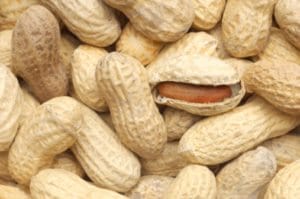 Photo: Getty
Photo: Getty The study, the largest OIT investigation to date, focused on 496 participants between the ages of 4 and 17, all of whom were highly allergic to peanuts. At the end of the study, 67 percent of the 372 participants in the treatment group could tolerate a single dose of 600 milligrams of AR101 powder mixed into food – the equivalent of about two peanut kernels.
By comparison, only 4 percent of the remaining participants in a placebo group could tolerate that amount.
In fact, in an exit challenge from the trial called Palisade, half of those being treated with the proprietary peanut biologic could consume a dose of 1,000 mg (or about three to four peanut kernels) with no symptoms or very mild symptoms. The median dose of peanut that participants could tolerate at the start of the study was only 10 mg.
As investigator Dr. Stacie Jones told the American Academy of Allergy, Asthma and Immunology and World Allergy Organization meeting in March 2018: “The median dose tolerated was 100-fold higher in the [treatment] group at exit compared to at entry, and symptom severity and epinephrine use at exit challenge were blunted.”
The treatment is meant to desensitize a patient, so the peanut-allergic person doesn’t react to small amounts of the legume. It is a therapy, but not meant as a cure. The NEJM study, presented at the ACAAI allergists’ conference in Seattle, was written by 13 experts, with Dr. Brian Vickery of Emory University as lead author. (Vickery is Aimmune’s former senior medical director, and led the 66-center investigation in 10 countries.)
The NEJM article alludes to the profound effect desensitization can have on a patient’s quality of life. The publication notes that, “despite vigilance, accidental exposures may occur and cause reactions of unpredictable severity, even with small amounts of allergen, leading to a lifelong risk of severe reactions.” But if the allergic individual can safely consume a few peanuts, this can be life-changing, as trace exposures will no longer present a severe reaction risk.

“We are excited to be submitting our applications for marketing approval in the United States next month and in Europe in the middle of next year,” he said.
With AR101, rather than simply using peanut flour, patients take a carefully produced and measured dose of powder that has a specific amount of different proteins in it. The doses are held in a capsule (or sachet, for larger doses) until the patients mixes it with food. The amount of peanut protein starts out tiny, at 1/2 a milligram, and increases gradually to reach 300 mg by six months. In this study, a patient in the treatment arm stayed on that dose for another six months, and then was given an oral challenge to peanut.
As in other OIT studies, mild to moderate side effects were common in the Palisade study. Twelve percent of patients in the treatment group discontinued due to adverse events, including gastrointestinal symptoms and hypersensitivity reactions. Epinephrine was used for severe reactions in two patients, and there was one case of severe anaphylaxis. “Overall, the safety profile of AR101 was similar to previous studies of oral immunotherapy with the frequency and severity of hypersensitivity reactions as was predicted prior to the study and as expected,” Jones told the AAAAI/WAO meeting.
Allergists have told Allergic Living they are encouraged by the prospect of FDA approval and having a sanctioned therapy to offer peanut-allergic patients. Although the Palisade trial focused on 496 children and teens, it involved a total of 551 participants, aged 4 to 55 years old.
See Also:
Allergists Excited for Peanut Therapy That’s in Line for Approval
Peanut Patch Progress Reported at European Meeting





